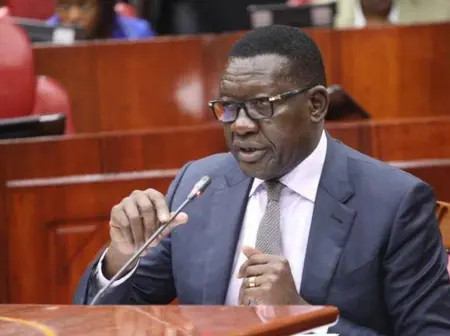The government has urged Parliament to approve a fresh proposal that seeks to introduce a national tolling policy to fund road development through a “user pay charges” strategy. The authorities argue that the move is needed to address budget deficits and offer a long-term means of funding the infrastructure.
Transport Cabinet Secretary Davis Chirchir told the National Assembly’s Departmental Committee on Transport and Infrastructure that when approved, the plan will prioritise major highways for tolling, remit revenue realized to road upkeep, and hold high levels of accountability in managing funds. He said the policy aims to maximise revenue from toll roads by adopting advanced tolling technologies and modern highway maintenance systems.
Under the new model, the policy will guide the selection and financing of road projects, provide a reliable revenue stream for construction and maintenance, and leverage private sector investment through Public-Private Partnerships (PPPs). It will also increase transparency in toll operations and contribute to environmental goals by limiting congestion and reducing carbon emissions.
“The Government seeks to prioritise development, maintenance, and rehabilitation of road infrastructure as envisioned in the Bottom-Up Economic Transformation Agenda (BETA) and Vision 2030. However, due to budgetary and financial constraints, there exists a significant deficit in road infrastructure financing, which necessitates the adoption of innovative mechanisms to raise additional funds to mitigate this funding gap,” Chirchir told the committee.
The committee, chaired by Ndia MP George Kariuki, maintained that toll-free alternative routes must be available so Kenyans have a choice. They acknowledged, however, that some regions lack viable alternative roads, raising concerns about inclusivity and access.
While backing PPPs as a means to speed up development, MPs stressed the need for transparency in contract terms to safeguard public interest, particularly regarding toll pricing and maintenance standards.
“There is a need for integration of the public’s feedback into the ministry’s final policy, with a firm focus on affordability, access, equity, and transparency for ensuring the tolling system serves the broader public interest,” the committee said.
Chirchir noted that the ministry had conducted public participation forums where Kenyans demanded strict accountability and transparency in managing toll revenues, the tolling system chosen, and the procurement process for toll operators.
Participants also pushed for toll exemptions for persons with disabilities, medical utility vehicles, and school buses. They further proposed shortening the policy review period from 10 years to five.
Kenyans apparently also called for a toll-sharing arrangement between national and county governments, greater stakeholder involvement in setting toll rates, and the introduction of discounts and toll-free days.
Chirchir explained that new, constructed, or improved roads, including those with additional lanes, enhanced safety features, and improved driving conditions, will qualify for tolling.
Tolls income, he said, will fund major projects such as the Rironi–Nakuru–Mau Summit Highway and the Nairobi–Mombasa Expressway. The two projects are undertaken under Public-Private Partnerships (PPPs), where private investors finance, develop, and maintain roads in exchange for toll income.
Roads to be tolled will have to handle a minimum of 5,000 vehicles daily and should have heavy freight traffic.
To guide this process, a multi-agency technical working group was formed in April last year to draft the Road Tolling Policy. Their mandate is to refine the policy and present it for parliamentary approval through a Sessional Paper.
Chirchir noted that the policy remains under review and could be amended further based on future engagements with Parliament and the Cabinet.
“I urge the Committee to give their views, support this policy, and any further amendments to the law that we shall be initiating to implement the policy,” he said.

Leave a Reply